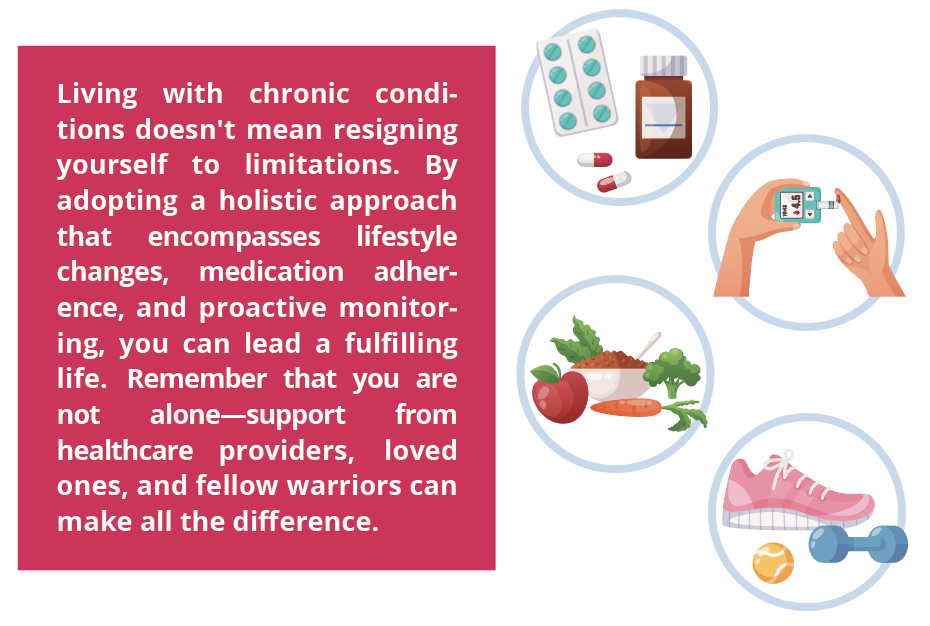
3 minute read
Thriving with Chronic Illness
By: Kishore Yellumahanthi, MD
Losing Weight, Diabetes & Hypertension
Obesity is a risk factor for both diabetes, hypertension, and many other chronic problems. If you cannon lose weight with lifestyle modifications, there are some good medications to help with the weight loss, ask your primary care provider for help.
Living with chronic diseases like diabetes and hypertension can feel like a continuous battle, but armed with the right strategies, it's possible to not just survive, but thrive. This article dives into chronic disease management, offering guidance on how to lead a fulfilling life through lifestyle changes, medication adherence, and proactive monitoring.
Diet plays a pivotal role in managing chronic conditions. Embrace a balanced diet rich in fruits, vegetables, whole grains, lean proteins, and healthy fats. For diabetes management, focus on controlling carbohydrate intake to manage blood sugar levels. Opt for heart-healthy foods to support hypertension management.
Active Living
Regular physical activity is a cornerstone of chronic disease management. Engage in exercises that suit your abilities, whether it's walking, swimming, or yoga. Physical activity helps control blood sugar, improve cardiovascular health, and enhance overall well-being.
Stress Management
Stress can exacerbate chronic conditions. Incorporate stress-reduction techniques like meditation, deep breathing, and mindfulness into your routine to keep your mind and body in balance.

Medication Adherence
Understand Your Medications
Educate yourself about your medications—what they do, how they work, and potential side effects. This knowledge empowers you to make informed decisions about your health.
Set Reminders
In our fast-paced lives, setting reminders for medication doses can prevent accidental lapses in adherence. Utilize smartphone apps or alarms to ensure you never miss a dose.
Organize Medications
Use pill organizers to streamline your medication regimen. This makes it easier to track whether you've taken your doses and minimizes the risk of accidental double doses.
Proactive Monitoring
Regular Check-Ups
Scheduled medical appointments are crucial for keeping chronic conditions in check. These appointments allow healthcare providers to monitor your progress and adjust treatment plans as needed.
Home Monitoring
For conditions like diabetes, at-home monitoring can be invaluable. Regularly check blood sugar levels and keep a record to share with your healthcare provider during appointments.
Blood Pressure Tracking
Hypertension management requires consistent blood pressure monitoring. Invest in a reliable home blood pressure monitor and track your readings regularly.
Importance of Support and Education
Support Groups
Joining support groups or online communities for individuals with similar conditions provides a sense of belonging and a platform to share experiences and insights.
Continuous Learning
Stay informed about the latest advancements in chronic disease management. Attend workshops, seminars, and engage with healthcare professionals to ensure your knowledge remains up to date.

With dedication, resilience, and a commitment to your well-being, you can navigate the challenges of chronic illness and emerge as a beacon of inspiration to others facing similar journeys.










